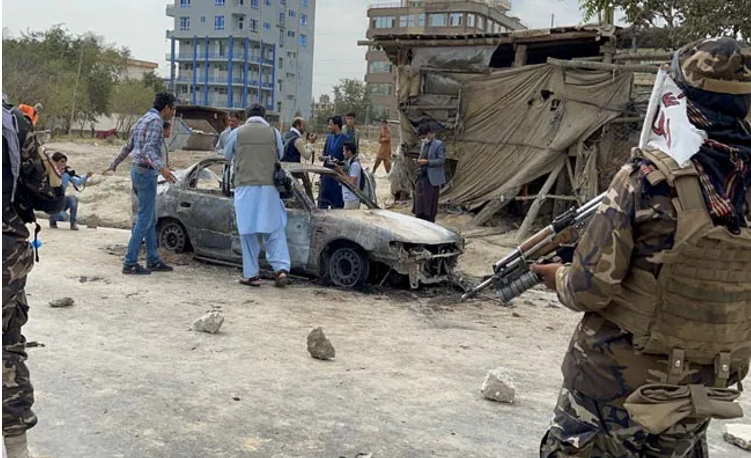3 years on, US still hunts attackers who killed Americans during afghan exit
Trump forged a February 2020 deal with the Taliban, but not the Afghan government

Three years after the suicide bomber attack at Afghanistan's Abbey Gate that killed 13 US service personnel and about 170 Afghan civilians, the network behind the perpetrator is "pretty degraded" but not eliminated, the Pentagon's civilian commando chief said.
"A lot of allied and partner disruptions" of the ISIS-K network have reduced its "capability to conduct such an attack," Christopher Maier, assistant secretary for special operations and low-intensity conflict, said in a brief interview after a breakfast meeting with reporters.
President Joe Biden promised on the day of the attack outside Hamid Karzai International Airport that "we will not forgive, we will not forget, we will hunt you down and make you pay." Maier said "we are in the process of doing that," and "we have made significant dents in this network that conducted the Abbey Gate attack."
The attack three years ago marked a devastating low point in an operation that critics have lambasted as chaotic even as 124,000 Afghans were evacuated amid the US exit from Afghanistan and the Taliban takeover of the country.
Republicans have seized on the attack to blast Biden's foreign policy. During his acceptance speech at the Republican National Convention in July, former President Donald Trump said US standing in the world "began to unravel with the disastrous withdrawal from Afghanistan, the worst humiliation in the history of our country."
Trump forged a February 2020 deal with the Taliban, but not the Afghan government, that set an initial timetable for US troop withdrawals from Afghanistan, which Biden modified.
Trump and the Republican Party blame Biden - and now Vice President Kamala Harris, the Democratic nominee to succeed him - for how the withdrawal was carried out.







